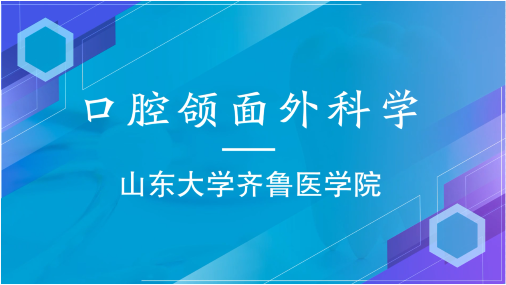
当前课程知识点:Research Methods in Tourism Studies > Week 6 Research Ethics > 6.1 Journal Publication > 6.1.1 How to publish in the top journals? (1)
返回《Research Methods in Tourism Studies》慕课在线视频课程列表
返回《Research Methods in Tourism Studies》慕课在线视频列表
今天早上我想大家分享两点内容
一是期刊发表
二是学术伦理
首先 自我介绍一下
我叫卡森·刘易斯·詹金斯
我是南开大学旅游与服务学院的客座教授
我说的两件事是非常有联系的
当然 对于从事学术工作的人来说 它们也是必不可少的
我演讲的主题是瞄准顶级期刊
那为什么说要瞄准顶级期刊呢
答案可见于香港理工大学的
Bob McKercher教授提供的数据
在过去的几年里
McKercher教授研究了
旅游和酒店业的出版物的发展
他告诉我 有超过300多种期刊
约350中期刊以“旅游”为主题
这意味着在各种期刊上发表论文的机会是巨大的
但是 作为一名即将开启学术生涯的学生
你的声誉将在很大程度上不仅取决于你发表了什么
而且还取决于你在哪里发表的 因此你需要瞄准顶级期刊
我建议你
无论你的特定领域研究是什么
都有公认的排名一、二、三的期刊
你应该一直努力使你的研究达到一个标准
这将使你能够向顶级期刊提交一篇研究文章
现在 如果我说有350种期刊
你可以发表
然后你说 等等 我才开始我的学术生涯
我应该瞄准哪些期刊呢
这就变成了经验的问题
你没有类似的经验
那么你可以从哪里得到建议呢
我认为首要的就是你的导师
你可以对你的导师说:
我一直在工作或者我们一直在研究这一特定的主题
它几乎到了可以被提交到期刊的阶段
我们应该提交到哪个期刊呢
在很大程度上 这决定取决于两点:
首先 这取决于你的导师对你工作质量的评价
这是首要的
论文是否可以提交给某一期刊了
其次 哪个期刊最适合发表你的论文呢
这可能是一个颇具争议的话题
正如我所说
现在大约有350种期刊可以投稿
但最终
作为一名学者 当你被评价时
不仅需要看你发表了多少文章
而且需要看你发表在哪里
你设法在顶级期刊上发表文章了吗
如果你有 这在你的简历上看起来确实很不错
那么 我们怎么发表呢
首先 任何一项研究都必须有一个标题
你会说 这很简单啊 我知道我在写什么
但这并不容易
因为你知道你在写什么
但是期刊审稿人
要确保你写的东西和标题相符
所以标题的选择变得非常有趣
让我给你举个例子
假设你正在写一些关于岛屿旅游的研究
所以标题是“岛屿旅游”
你认为这是一个精确的标题吗
是又不是
因为如果你看一下旅游研究的文献
我们会把“岛屿”这个词细分为不同的类别
有一些小岛屿
如加勒比海和太平洋里的小岛屿;
也有非常大的岛屿 比如马达加斯加岛
如果你想把岛屿扩展到大的岛屿的概念
那么澳大利亚就是一个岛国
你要做的就是说明这篇文章
是关于小型岛屿的旅游业的
可能是加勒比海的小岛
可能在太平洋上的岛屿
还有另一个亚类
我们称之为冷水岛
所以这些岛屿通常不在游客视野之内
因此标题非常重要
它应该反映文章的内容 行文思路
并吸引读者的注意力
标题必须准确
如果它不准确 人们会说 我读过这个论证
这是错的
因为我越深入地阅读文章
就会发现它与标题的相关性越小
因此 标题必须准确
找到一个吸引人的标题变得非常重要
例如 有人可能会说
一个世界级的旅游度假目的地
或一个最适合老年人的度假目的地
这样你的标题就更有力了
在某种意义上 期刊选择变得非常重要
因为有时你可能会发表一些
与旅游或服务管理或酒店有关的文章
但不是发表在主流的旅游期刊上
举个例子 我自己的研究领域
是政治经济和旅游发展
然后我经常会选择
一本跟发展相关的期刊来出版
而不是发表在《Tourism Management》或《Annals of Tourism Research》上
我永远不会在《Journal of Tourism Research》期刊上发表文章
因为那是一本高度定量的期刊
这不是我要发表的东西
因此 期刊的选择很重要
你文章的内容必须反映在标题里
因为当你提交论文时
编辑首先看到的就是你的标题
编辑会想:这与我们的期刊相关吗
其次 每期期刊都会要求你写一篇摘要
可能是100个字 也可能是200个字
什么是摘要
摘要就是你论文的总结
这是你论文的浓缩版
在这个过程中 你试图传递某些信息
你需要做的是介绍论文的研究范围
这篇论文是关于什么的
其次 我认为你必须非常简短地说明
你是如何开展研究的
你需要说明这是基于定量
定性或者混合研究
比如田野调研、问卷调查等
即简短地告诉人们你做了什么
以及你是怎么做的
在结论部分 最重要的是
告诉读者你的研究成果
你有什么新发现
或者证实了现有的研究吗
它与现有文献有什么关系
最重要的是要符合字数要求
如果它说500个字
或者100个字 那就不要超过这个数
因为如果你超过了这个数 编辑就会不高兴
因为有时候我们在发表论文
或提交论文时不知道这些要求
这会使得论文发表变成一项非常昂贵的活动
因为 如果我们超过了字数要求
编辑们会不高兴
他们可能会发回给你说:请再写一次
因此 摘要就是你论文的总结
如果你上网检索 找到一个你感兴趣的题目
在读了摘要之后
你发现你对这个感兴趣 你就会继续阅读
你也有可能会说:不 这不是我想看的
我认为这是非常重要的重要
其中最重要的就是给自己找一个标题
第二 你可以问你的同事或问有经验的出版商
问一下他们认为这篇论文应该在哪里发表
第三 确保你的标题反映了你所做的事情
在此阶段
你应该去期刊或公开出版期刊的期刊网页
仔细阅读它所说的兴趣所在
还有期刊风格之类的事宜
因为如果你一开始就没有把它做好
那么返工将会非常麻烦
-1.1 Research Question and Research Objectives
--1.1.1 Student interview before class
--1.1.2 The starting point: question
--1.1.3 What is a good research question?
--1.1.4 Ways to find a good research question
-1.2 Title Design
--Acticle: Leisure & Travel as Class Signifier: Distinction Practices of China's New Rich
--Discussion: Why do we research?
-1.3 Literature Retrieval Method and Literature Databases
--1.3.1 Common literature retrieval method
--1.3.2 Common literature search database
-1.4 Information Collection and Academic Journals in Tourism
--1.4.1 Academic journals in tourism research
--1.4.2 Literature collection methods and principles
-1.5 Literature Reading
--1.5.2 Overcoming obstacles in literature reading
--Week 1 quiz
--Discussion: What difficulties have you encountered in reading literature?
-2.1 Philosophical Bases of the Two Approaches
--2.1.1 Philosophical bases of the two approaches
-2.2 Differences between the Two Approaches
--2.2.1 Differences between the two approaches
--Article: Does tourist–host social contact reduce perceived cultural distance?
-2.3 Be Aware of Your Own Research Views
--2.3.1 Be aware of your own research views
--Discussion: How to choose research method?
-2.4 Research Example: Social Tourism
--2.4.1 What is social tourism?
--2.4.2 Established frameworks on social tourism
--2.4.3 Major research findings on social tourism
--2.4.4 Major findings of social tourism research
--2.4.5 Opportunities and challenges for social tourism
--Week 2 quiz
- 3.1 Key Procedures in Qualitative Approach
--3.1.1 Key procedures in qualitative approach
-3.2 Qualitative Data Collection and Analysis
--3.2.1 Key procedures and data collection methods in qualitative approach
--3.2.2 Data collection and analysis in qualitative approach
--3.2.3 Data analysis in qualitative approach
-3.3 Case Study and Content Analysis
--Discussion: Have you ever used a qualitative approach in your research?
-3.4 Using Coding and Themes in Qualitative Research
--3.4.1 Using coding and themes in qualitative research(1)
--3.4.2 Using coding and themes in qualitative research(2)
-3.5 Using Conceptual Framework in Qualitative Research
--3.5.1 Using conceptual framework in qualitative research(1)
--3.5.2 Using conceptual framework in qualitative research(2)
--Article: Tourist typology in social contact: an addition to existing theories
--Week 3 quiz
--Discussion: How to ensure the reliability and validity of qualitative study?
-4.1 Using Questionnaires in Quantitative Research
--4.1.1 Make an effective literature review and research method design
--4.1.2 Learn to write powerful findings and discussion
-4.2 Using Experiment in Quantitative Research
--4.2.4 Eye tracking experiment
-4.3 Using Mixed Method
--4.3.1 Sustainabble tourism development (1)
--4.3.2 Sustainabble tourism development (2)
--Article:Creating a scale for assessing socially sustainable tourism
--Week 4 Quiz
--Discussion: How to use quantitative methods to study tourists' reaction?
-5.1 Current Research Priorities
--5.1 1 A review of hospitality research
--5.1.2 Impact of information technology on hospitality and tourism research
-5.2 Multi-Level/ Multiple Sources of Date Collection
--5.2.1 Experimental design (1)
--5.2.2 Experimental design (2)
--5.2.3 Multi-level/multiple sources of data collection
-5.3 Mixed Method and Interdisciplinary Research
--5.3.2 Interdisciplinary research
--Article: The meanings of destination: a Q method approach
--Discussion: Can you talk about your understanding of research methods?
-5.4 Using Delphi Method in Research Design
--5.4.1 What is the Delphi method?
--5.4.3 Characteristics of the Delphi method
--5.4.4 Predicting the future of wine tourism
--Week 5 quiz
--Discussion: Philosophical basis of research methods
-6.1 Journal Publication
--6.1.1 How to publish in the top journals? (1)
--6.1.2 How to publish in the top journals? (2)
--6.1.3 How to publish in the top journals? (3)
--6.1.4 How to publish in the top journals? (4)
--Article: Analyzing the economic sustainability of tourism development: evidence from Hong Kong
-6.2 Academic Ethics
--6.2.2 Student interview after class
--Week 6 quiz
--Discussion: Academic publication and academic ethics
--Final quiz
